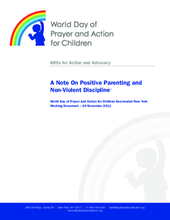Displaying 13111 - 13120 of 14579
This paper explores the research evidence from England and France on the mental health of young people aging out of care and into adulthood.
This article, from the Children and Youth Services Review special issue on ‘Young People's Transitions from Care to Adulthood’ examines the school performance and psychosocial wellbeing of care leavers in Sweden.
The authors of this article carried out a follow-up study of 143 young adults leaving kinship care. They assessed the young adults’ transition to adulthood with interviews and questionnaires. A small part of the sample presented serious problems of social exclusion. Seventy percent had found employment or were in higher education. The youth had frequently suffered the loss of foster carers and lack of support.
The study explores the post-care experiences of young Jordanian care leavers. Material struggles were similar to peers internationally. The distinct difference for Arab care leavers was the cultural influence. Patriarchy, family life and collectivism impact the care leavers' experiences. A cultural dimension increases understanding of leaving-care.
Few local authorities had elaborated programmes or routines for care leaving. Many small municipalities had few young people in care, which made it difficult to organise elaborated programmes for care leaving. Manager’s expected a rapid and linear transition to adulthood. Little awareness of the yo-yo transition pattern common for other young people. Managers were worried that continued contact with social services would lead to young people being dependant on support. Only 6% of managers had any information of young people’s whereabouts, once they had left care.
Understanding youth transitions from out of home care must include developing countries. A model is presented to facilitate this global integration. The model combines resilience and social capital within a social ecology of support. Use of the model is illustrated by a South African youth mentoring scheme for care leavers.
Foster youth in the US do not appear to be receiving many forms of help that are called for in federal law. Over one-third did not receive help they would have liked to have received. System factors play a stronger role than individual indicators of need in help receipt. Independent living services should be more widely available and better targeted.
Cet article fournit un aperçu utile des initiatives du Burundi dans le domaine de la protection des enfants, y compris le travail pour élaborer des normes minimales pour les établissements de garde d'enfants et de soutenir les enfants vivant dans
This informational note for action, produced by World Day of Prayer and Action for Children, aims to support religious communities and partners in promoting “positive parenting” and non-violent disciplining of children.
"The European Union (EU), joined by its implementing partner the United Nation International Children Educational Fund (UNICEF), is supporting household families through a "Social Cash Transfer" scheme launched in the Liberian capital Monrovia on Thursday afternoon," according to this article from Almaghrib Today.

